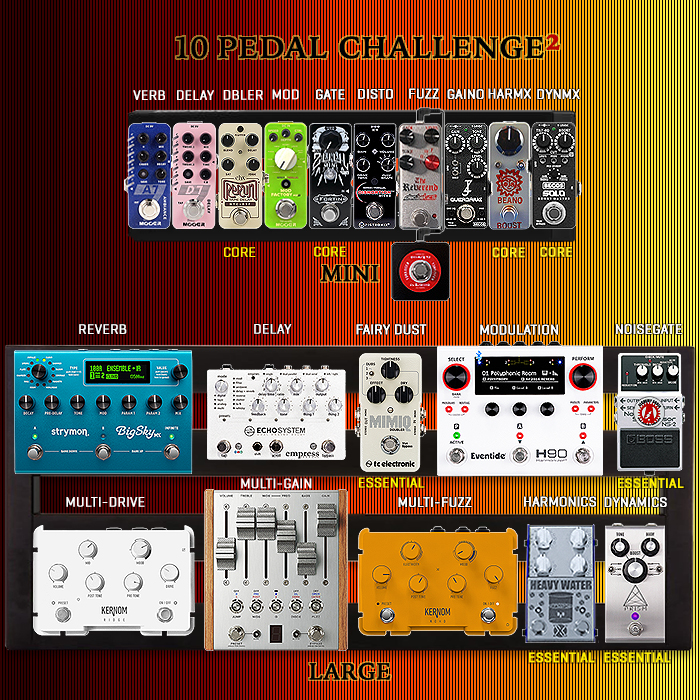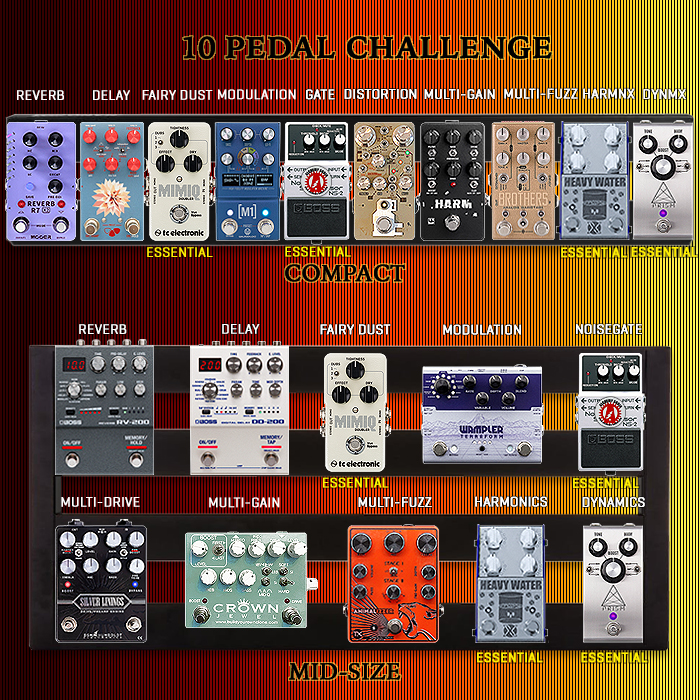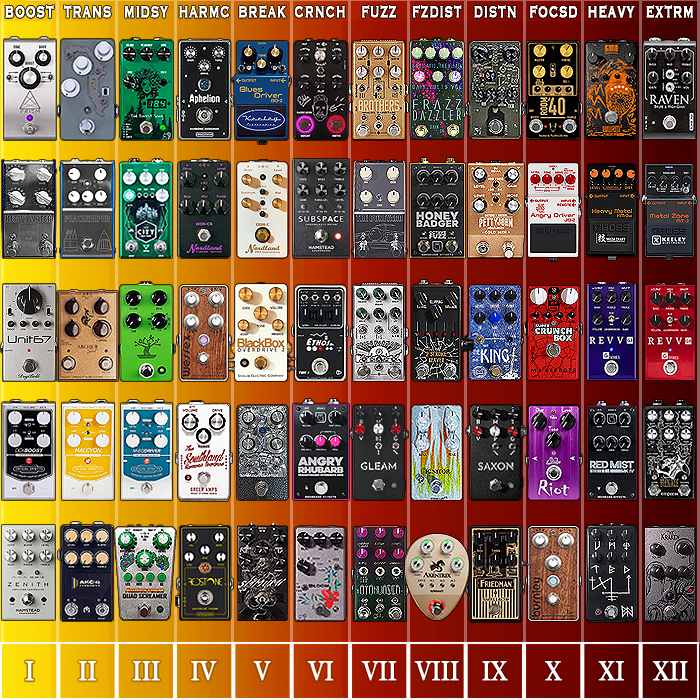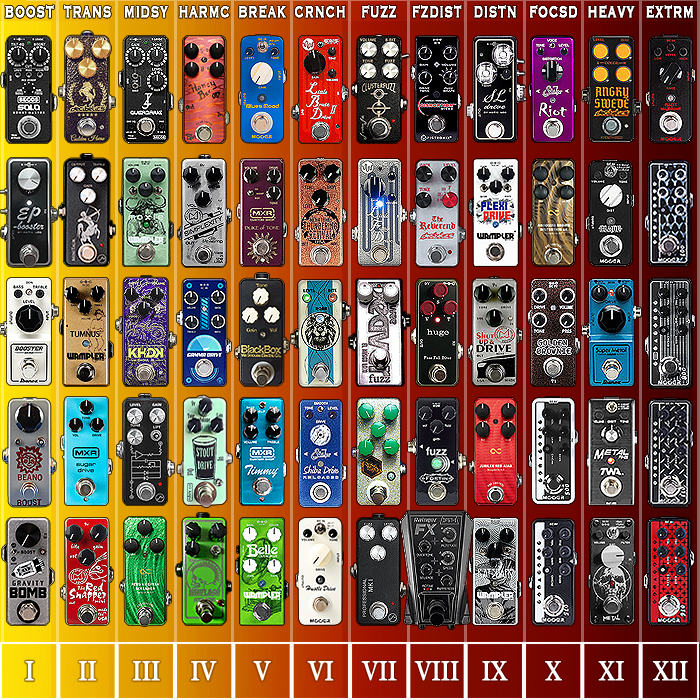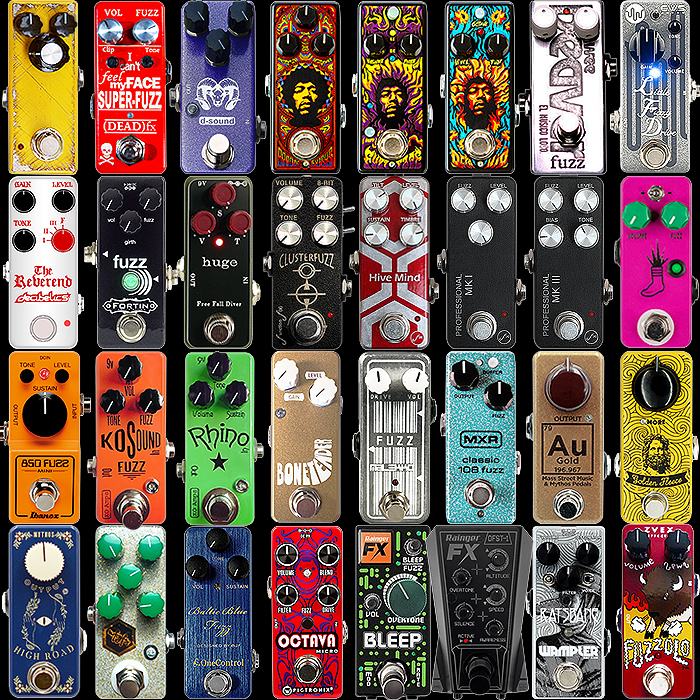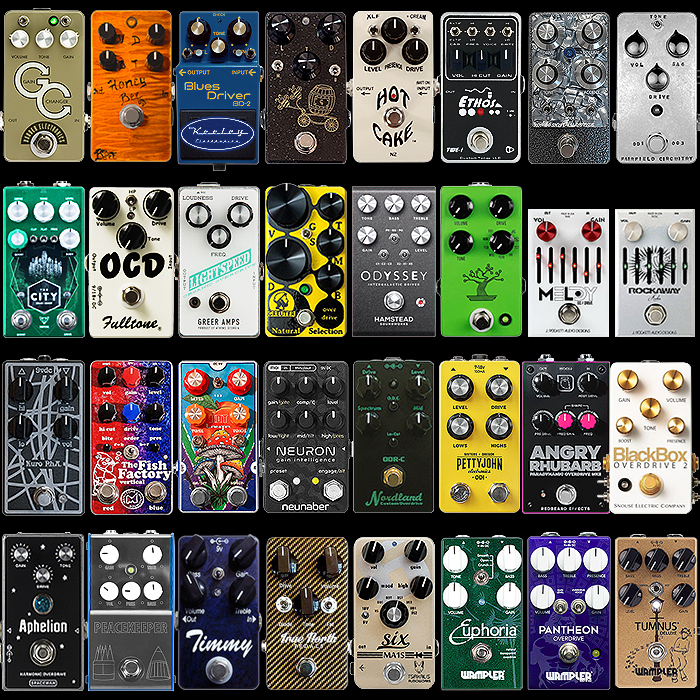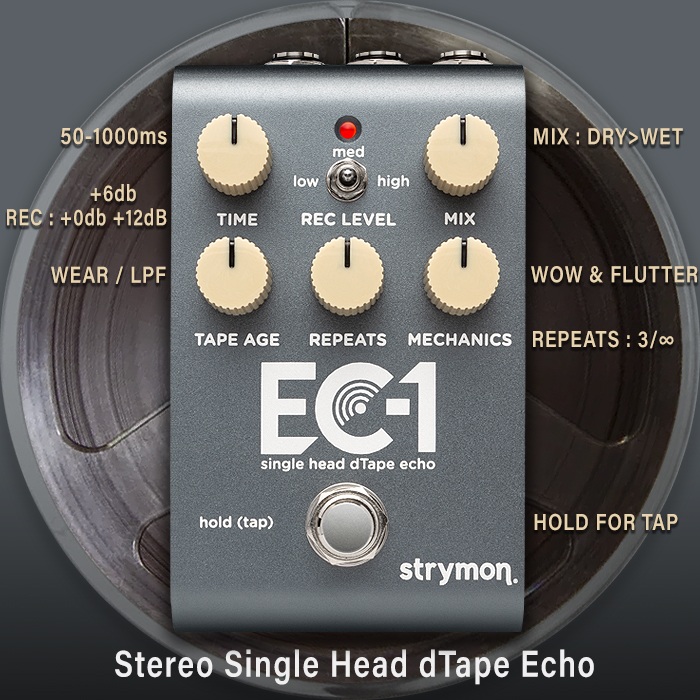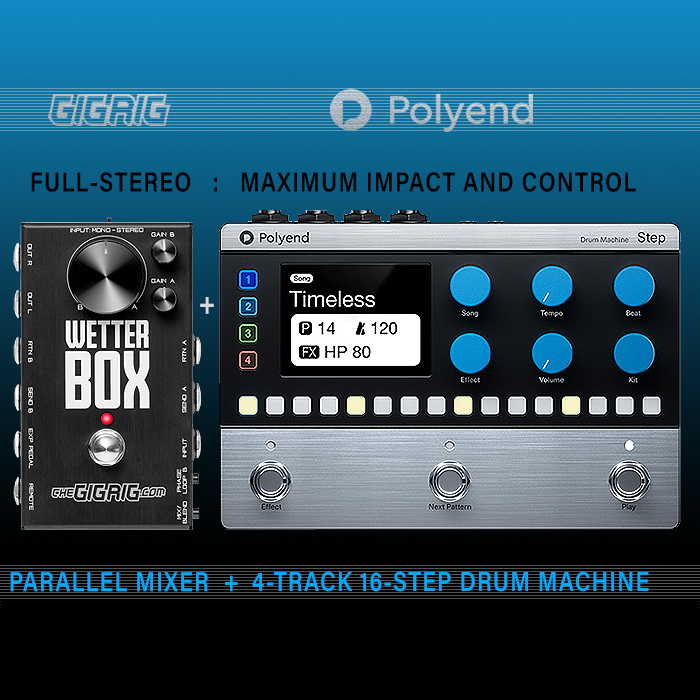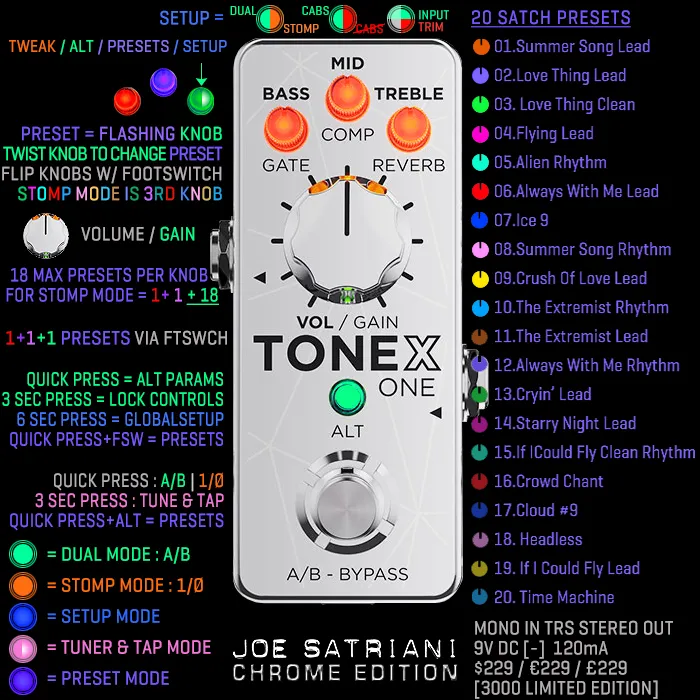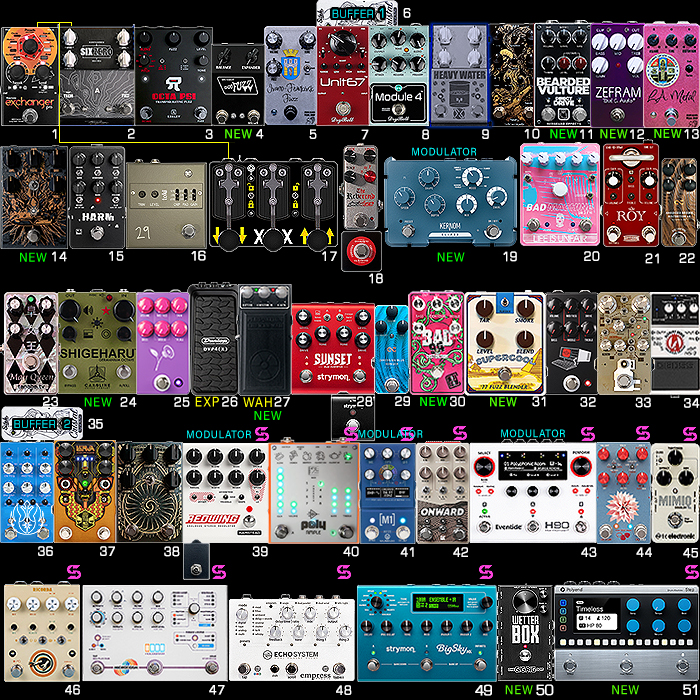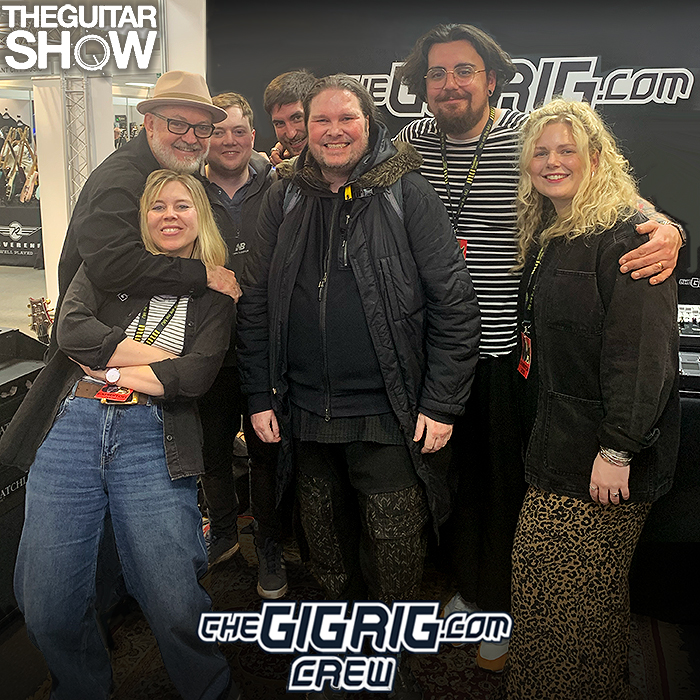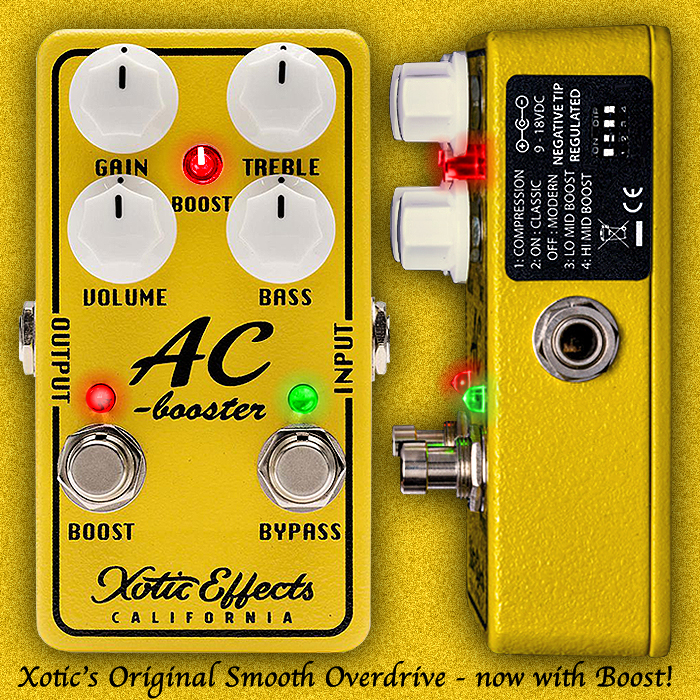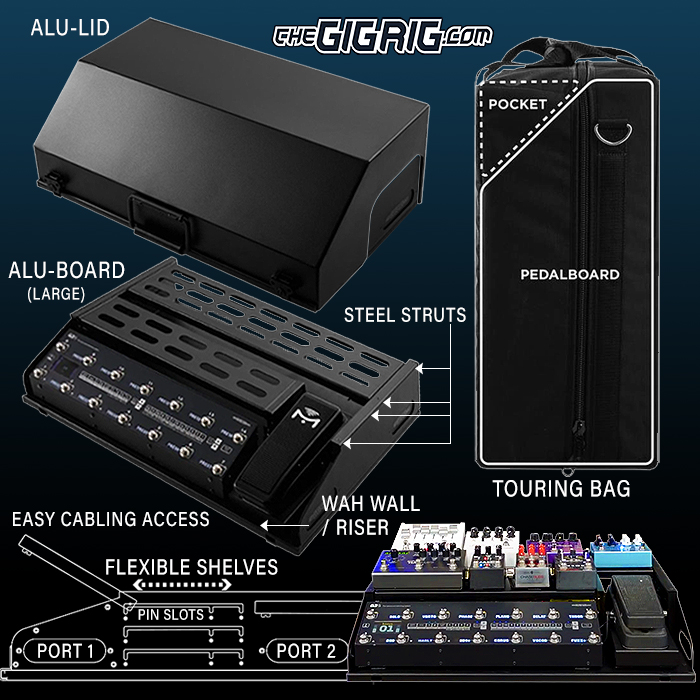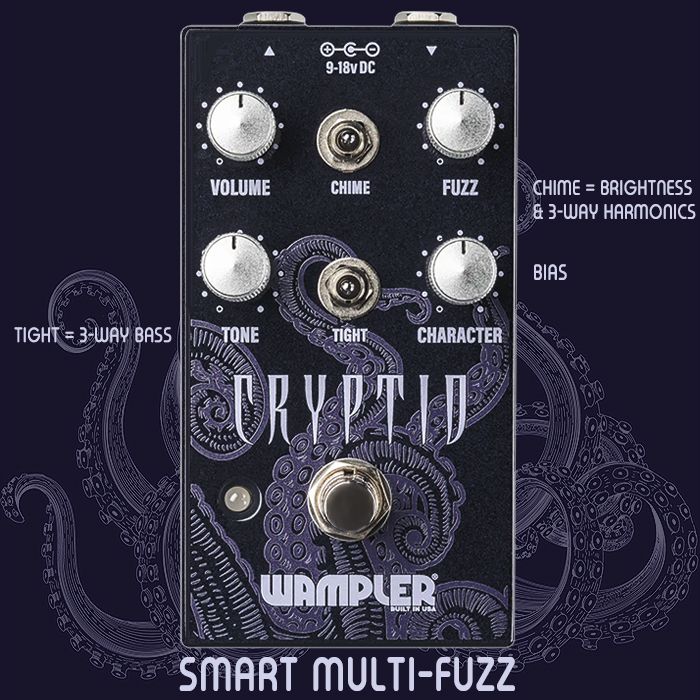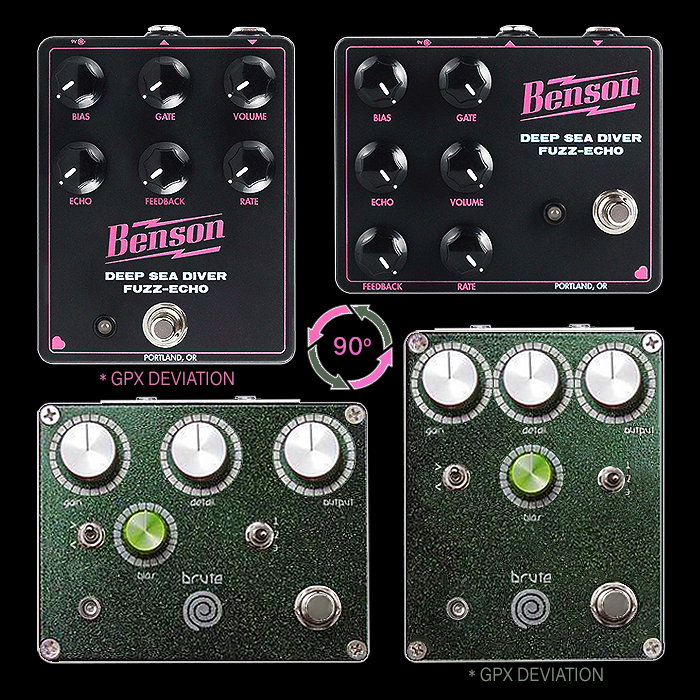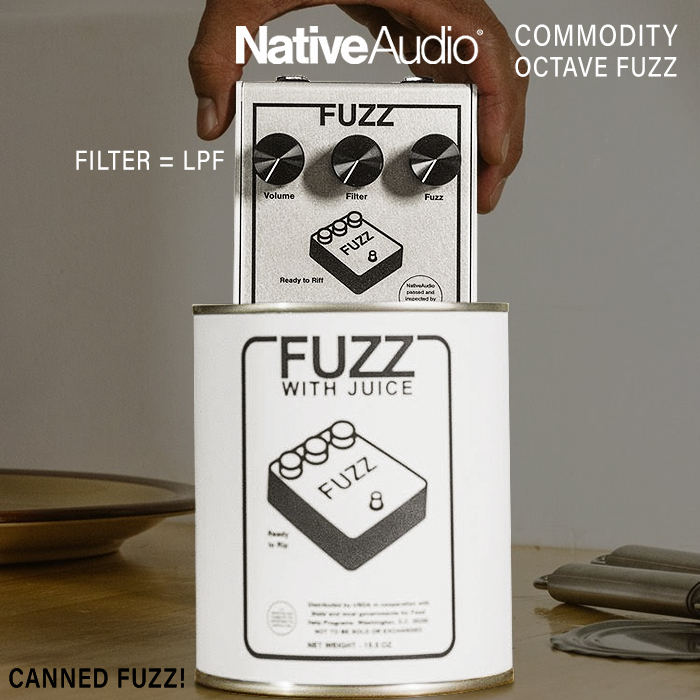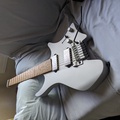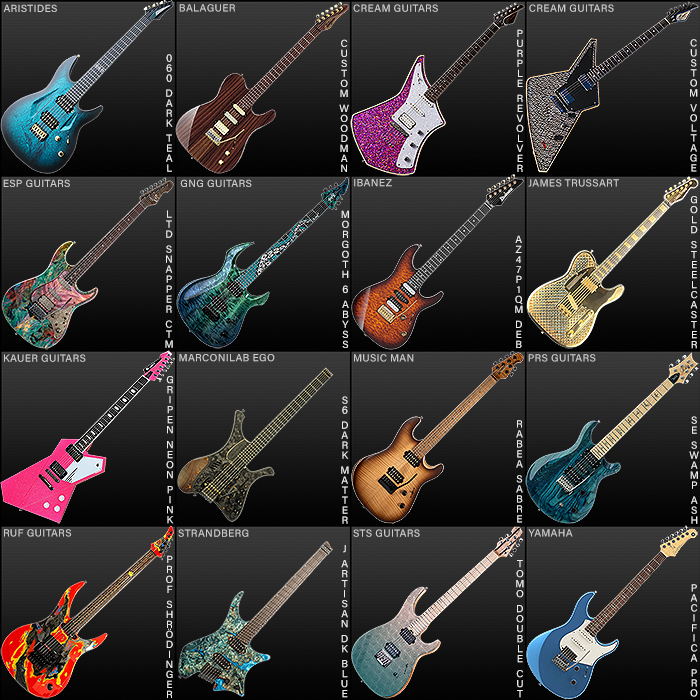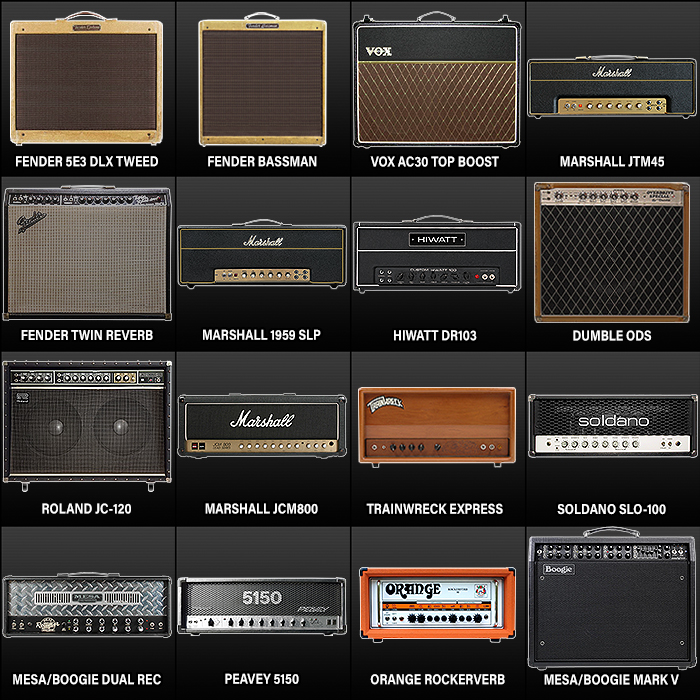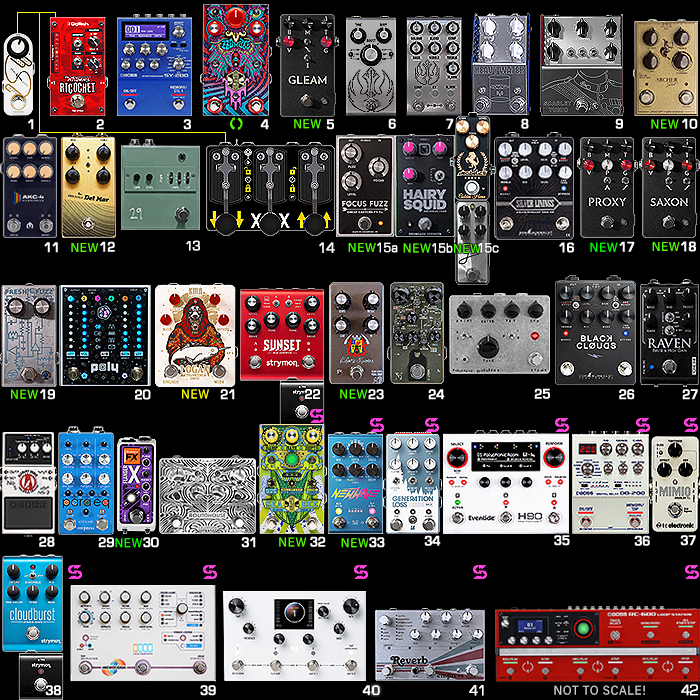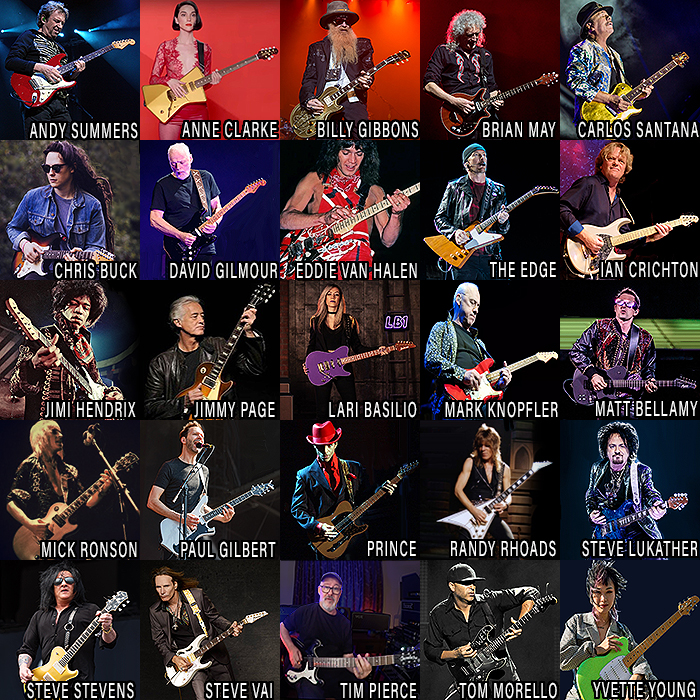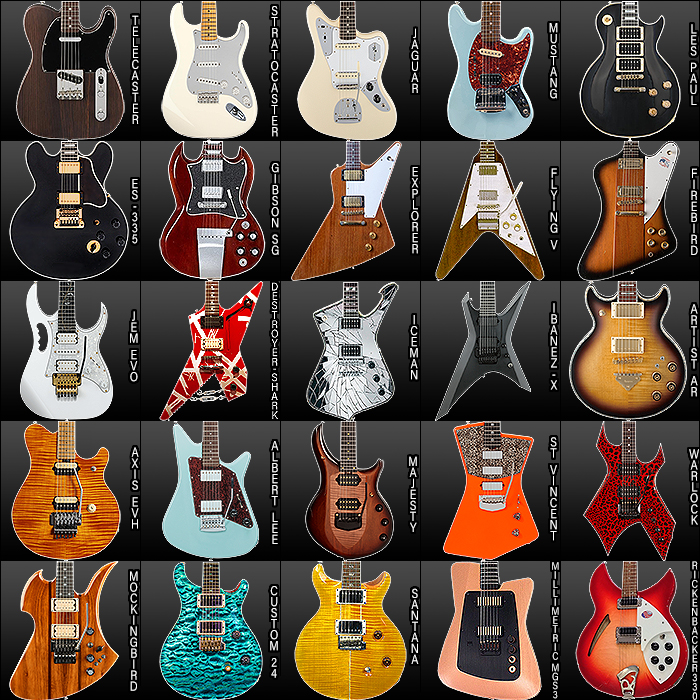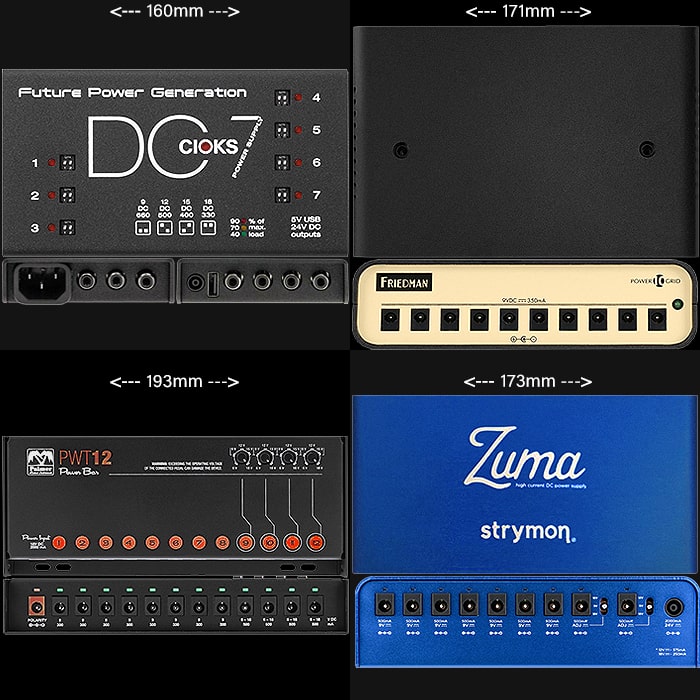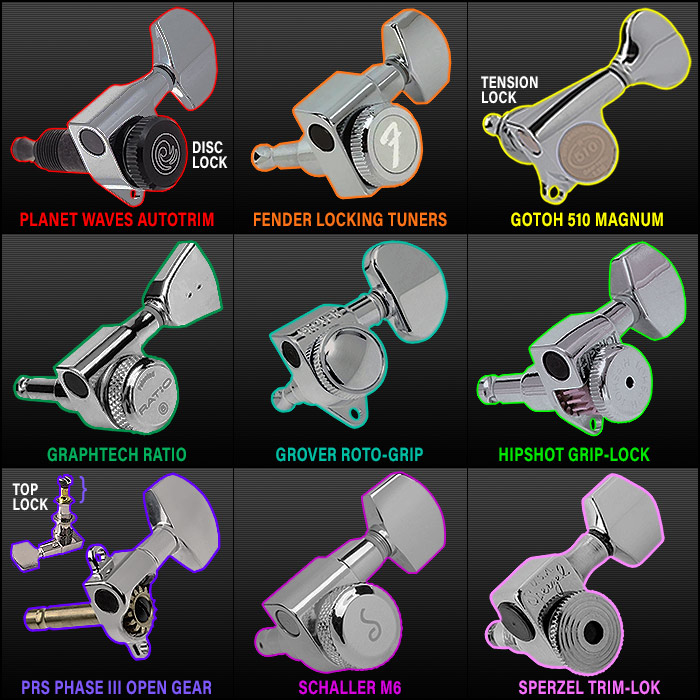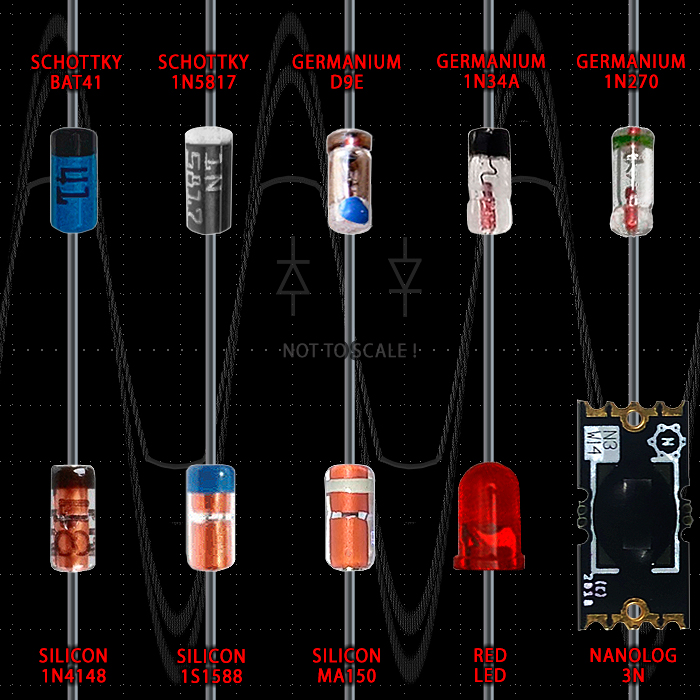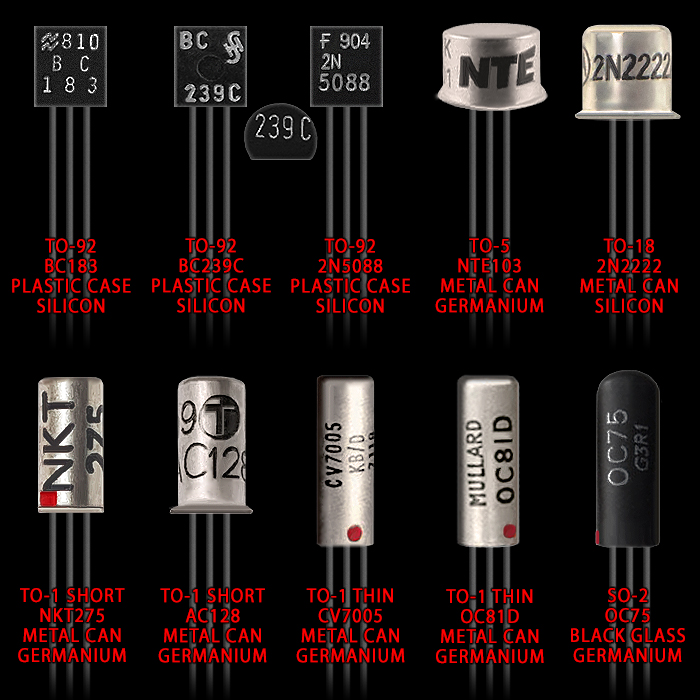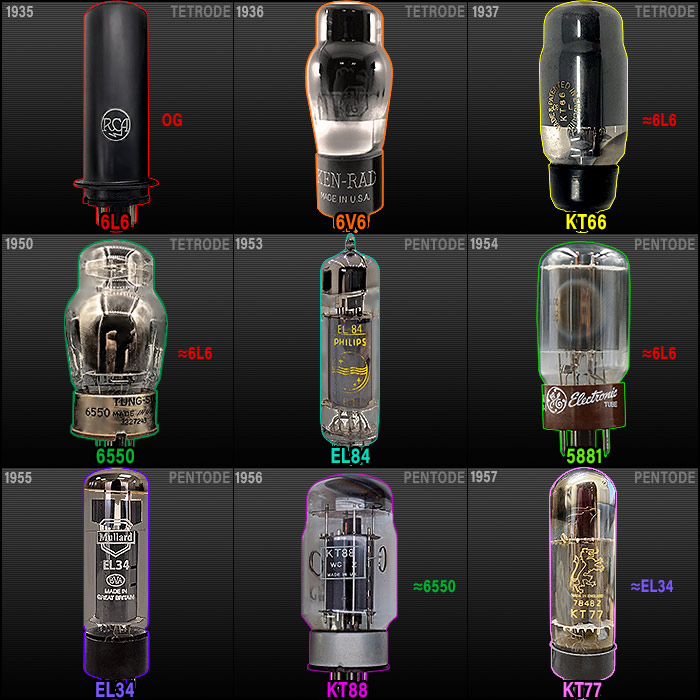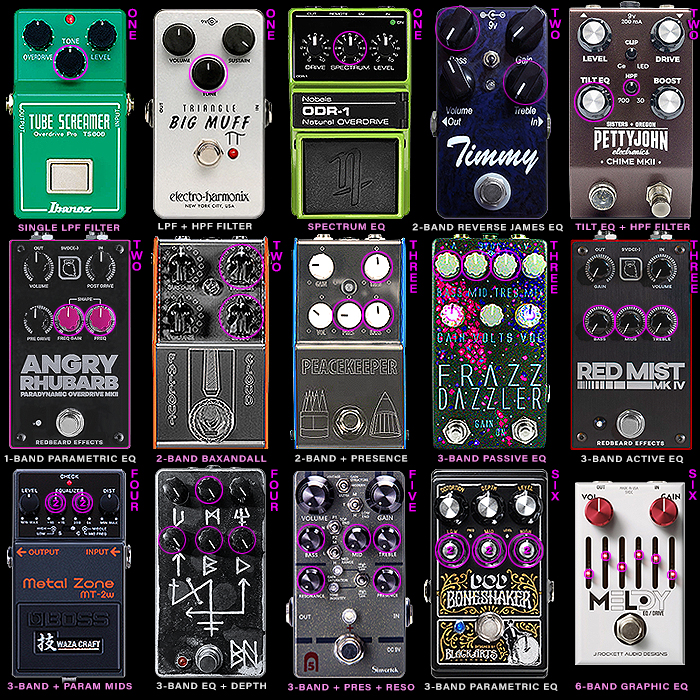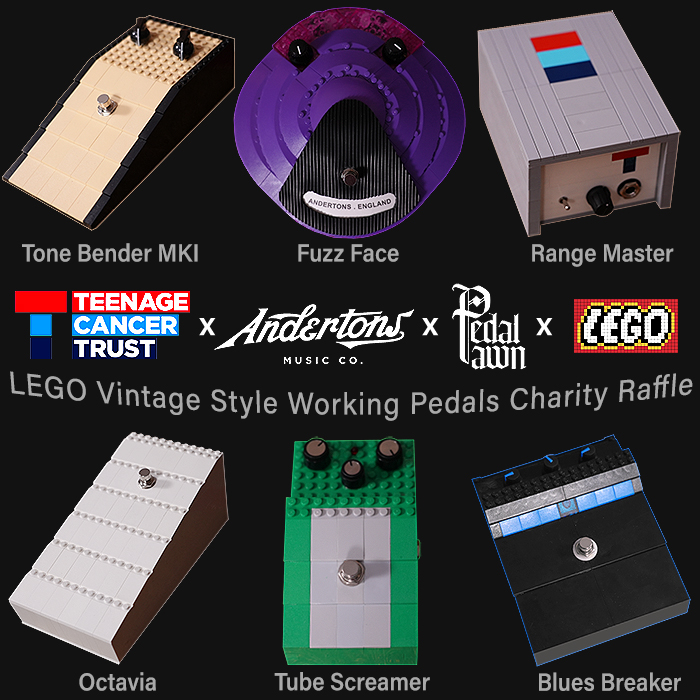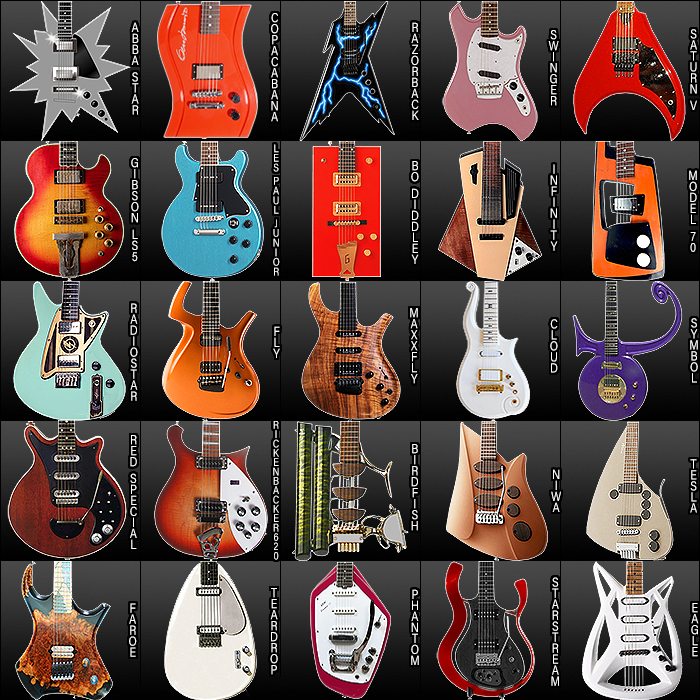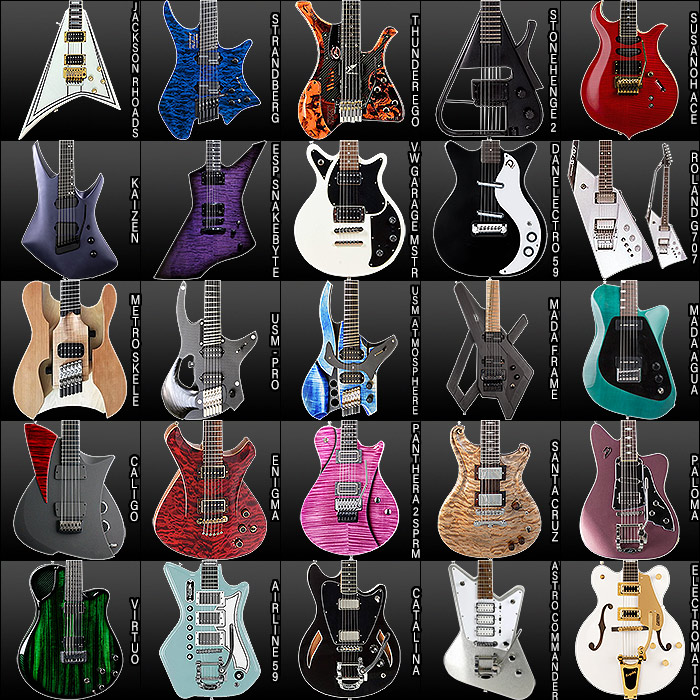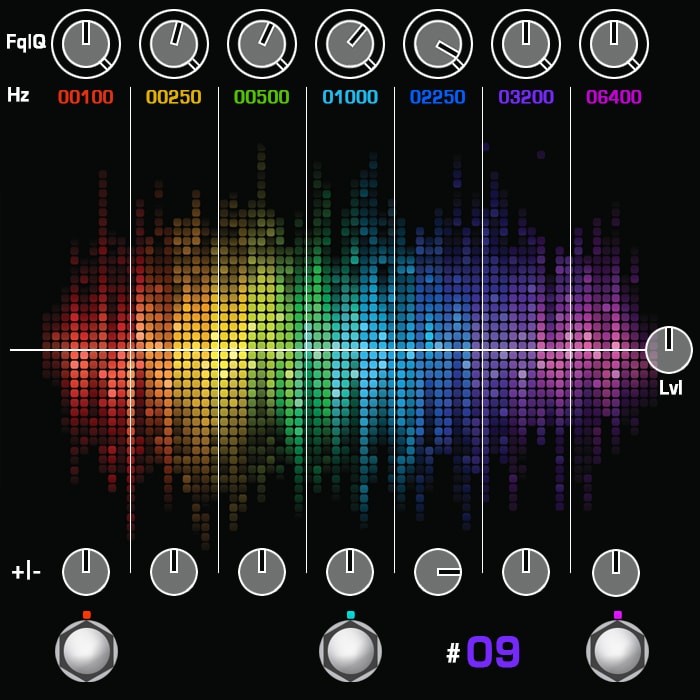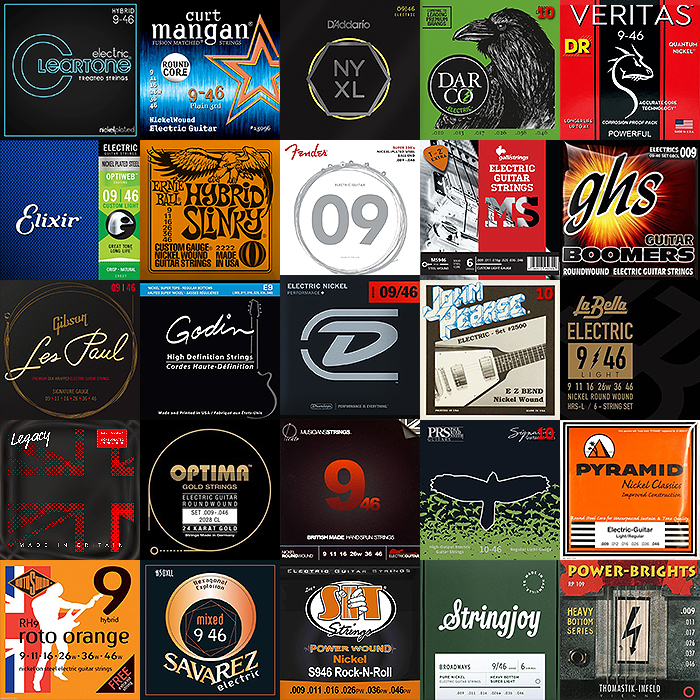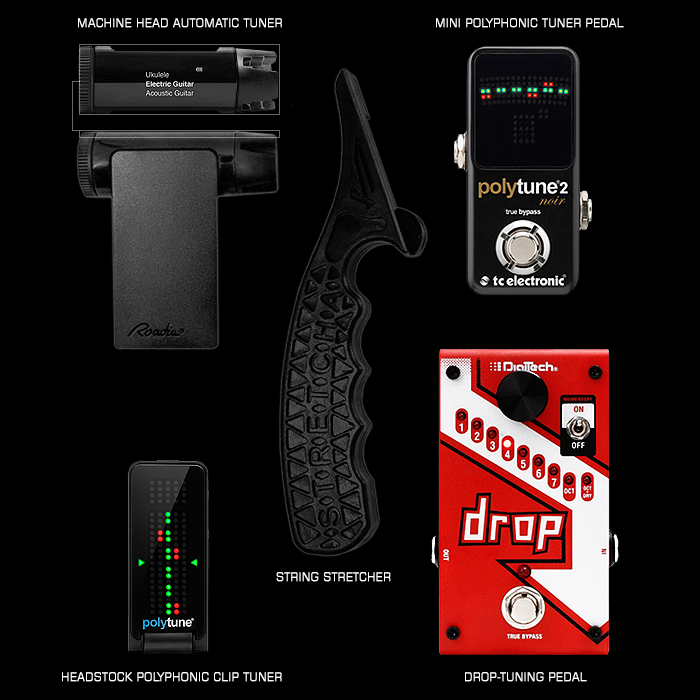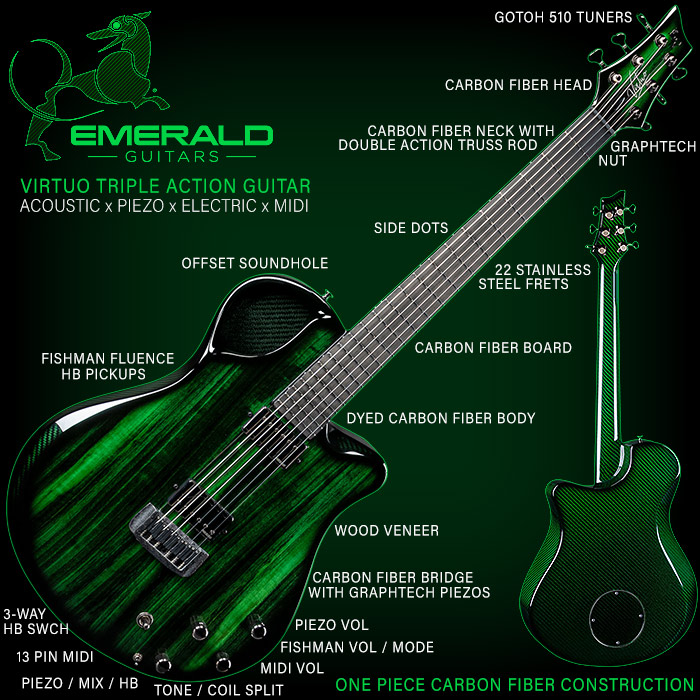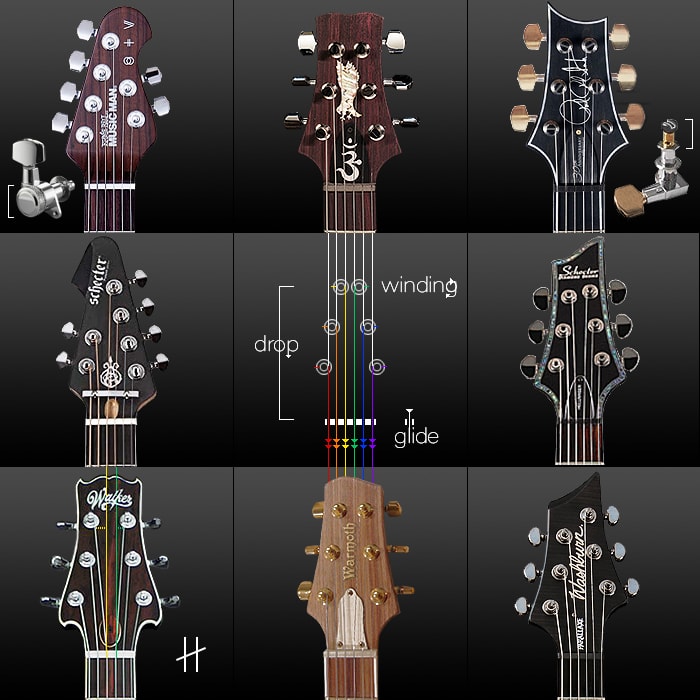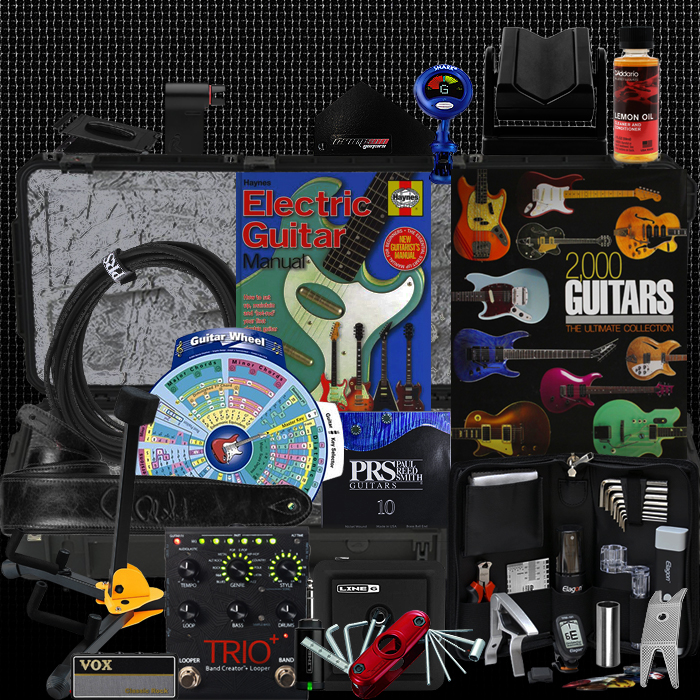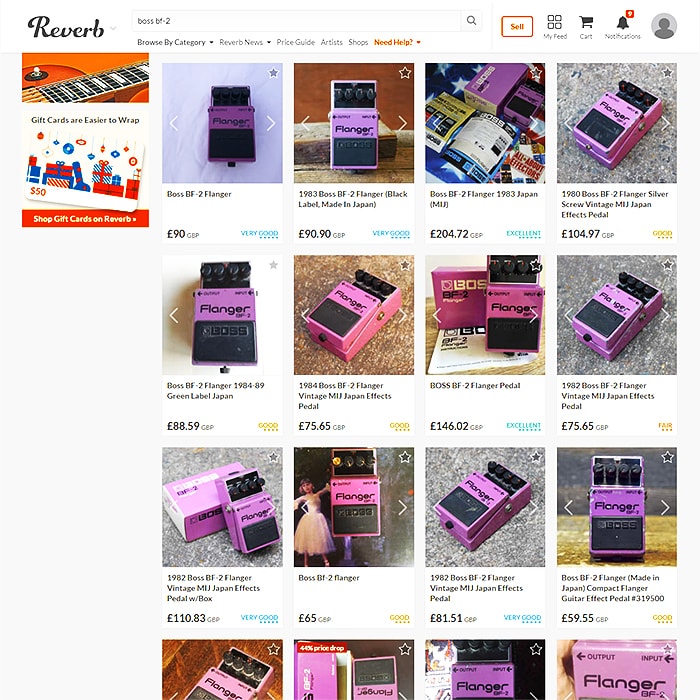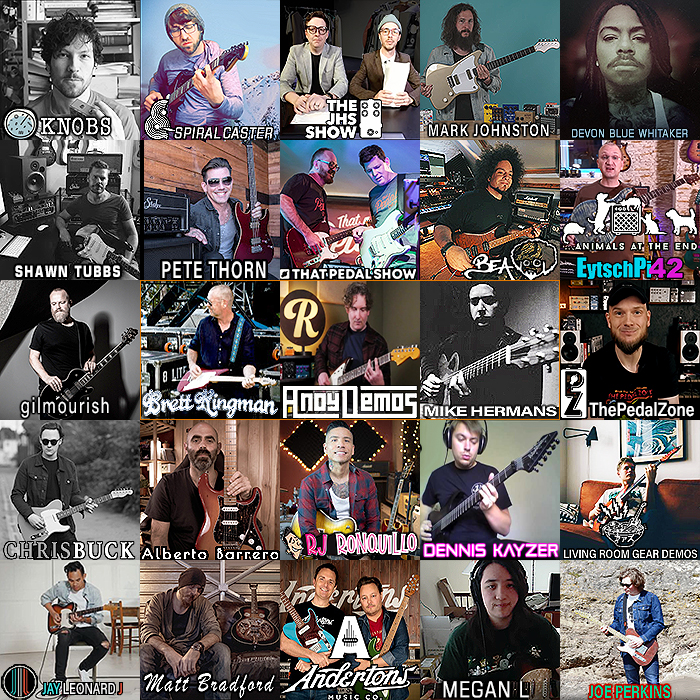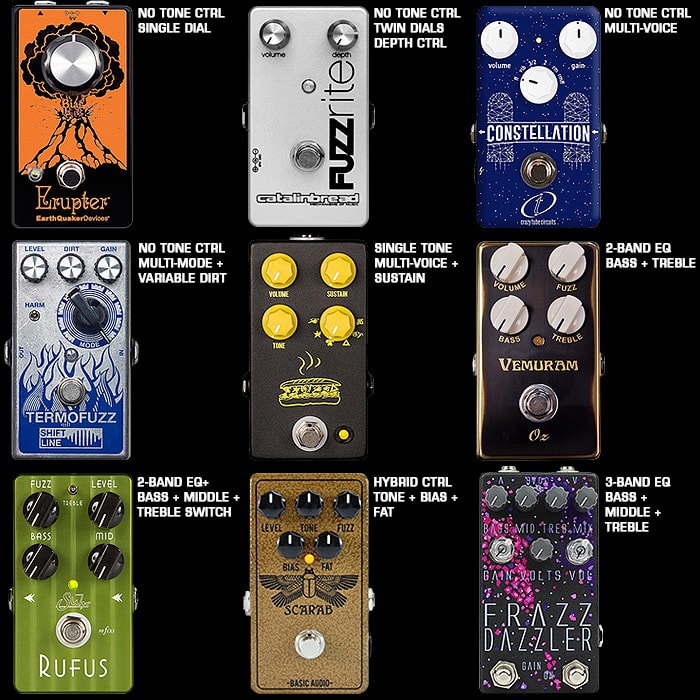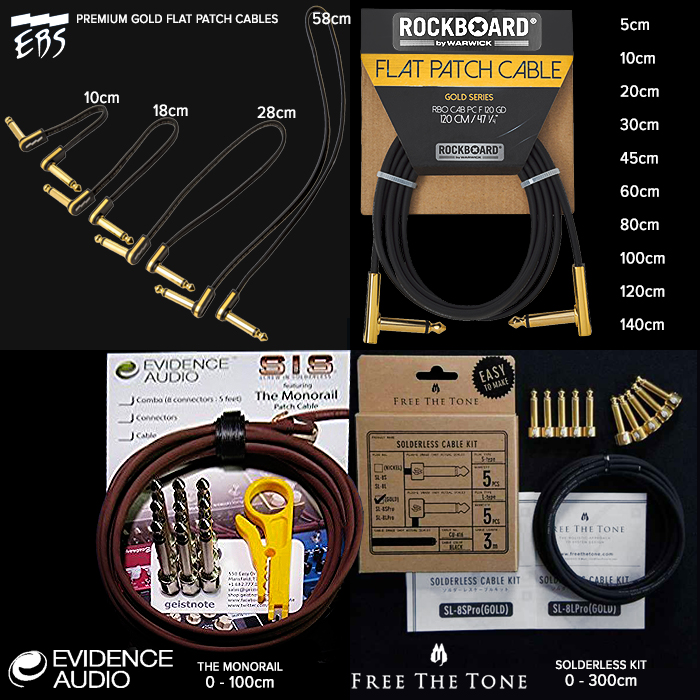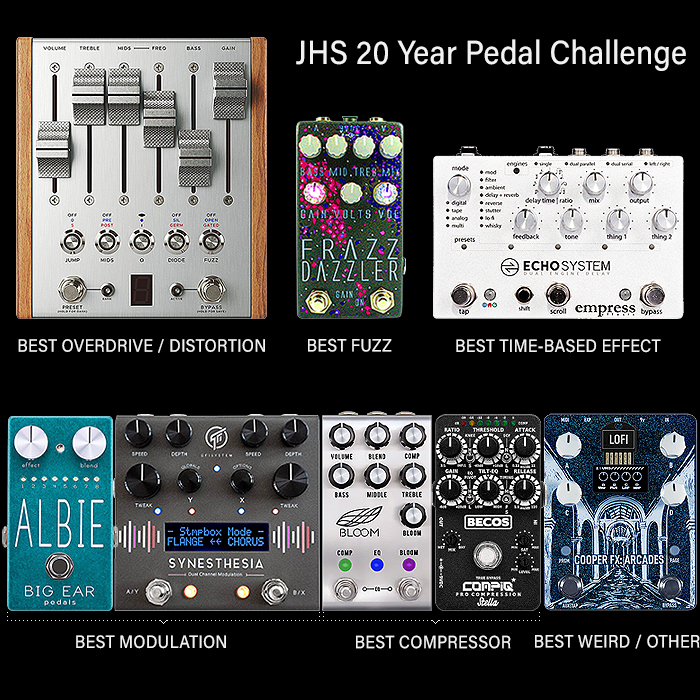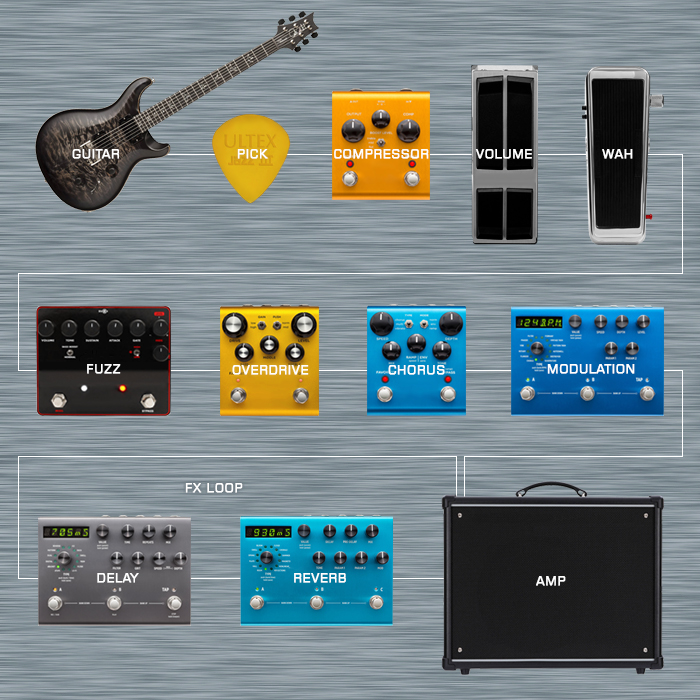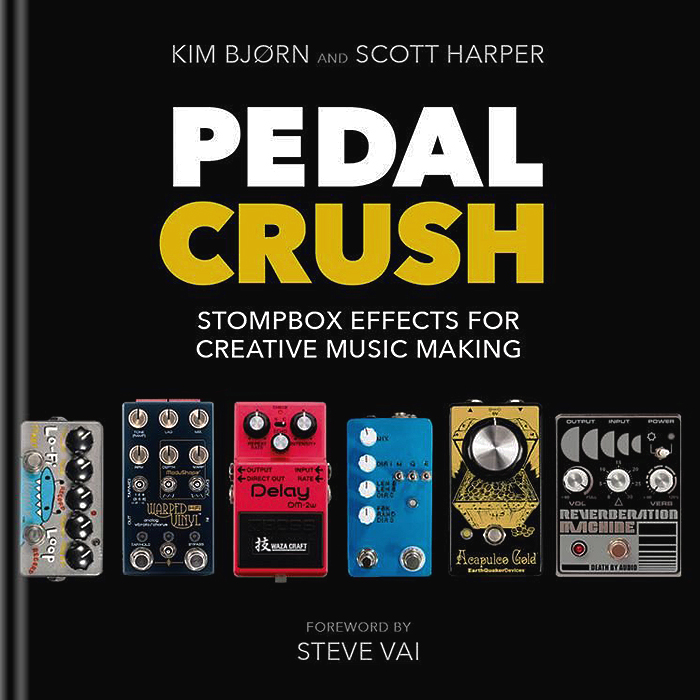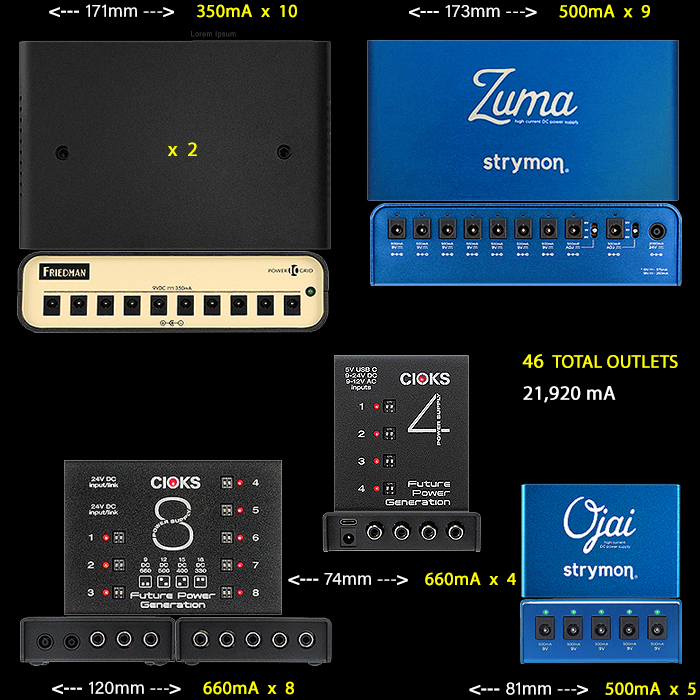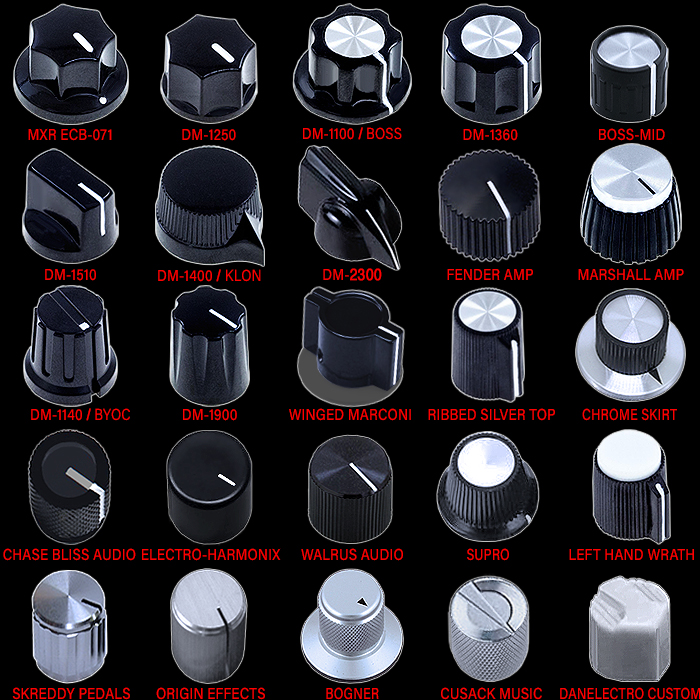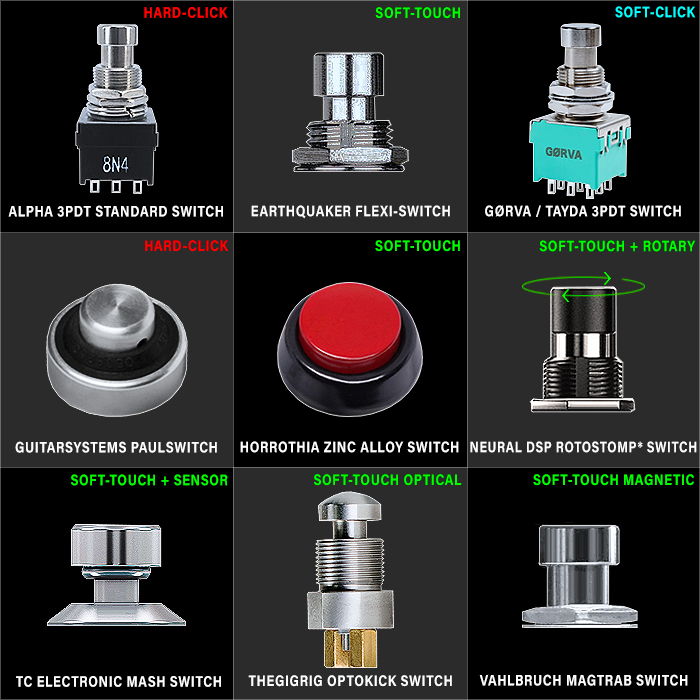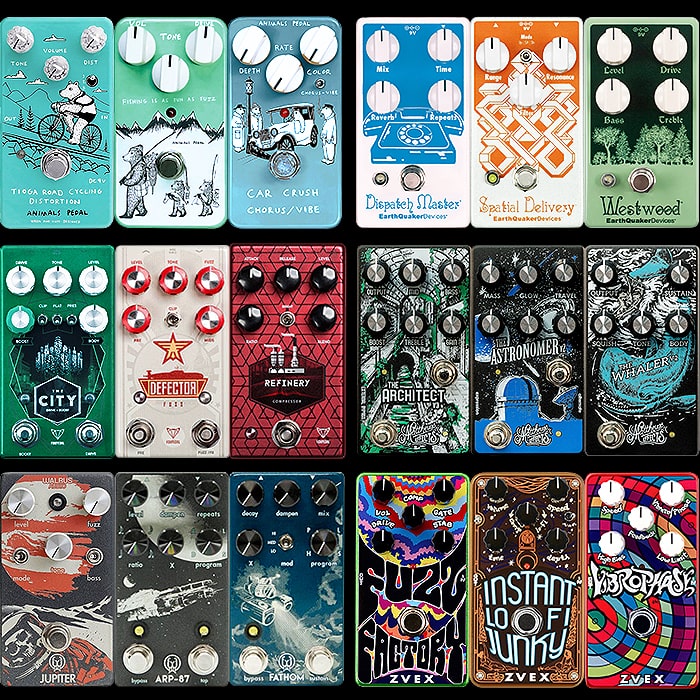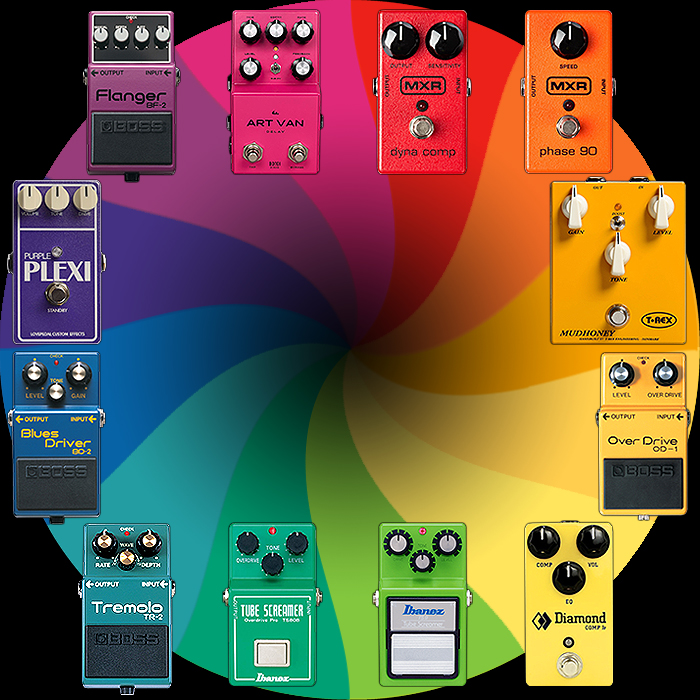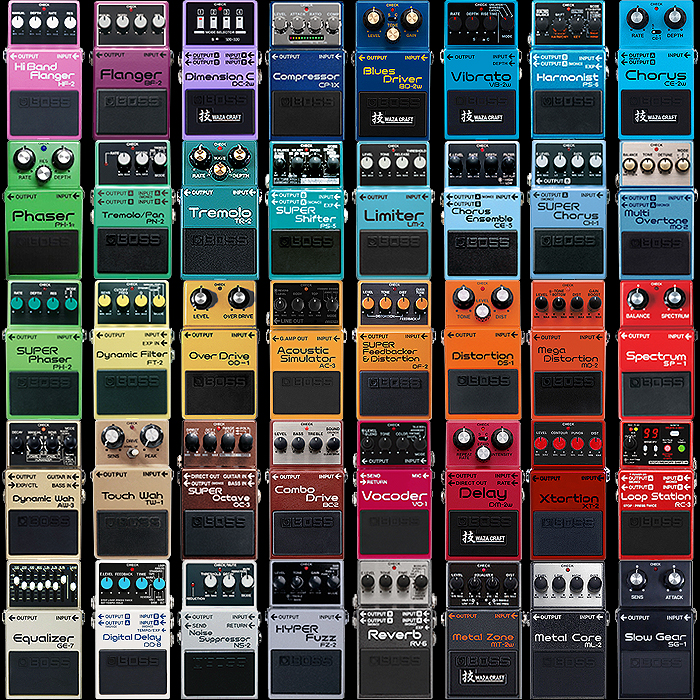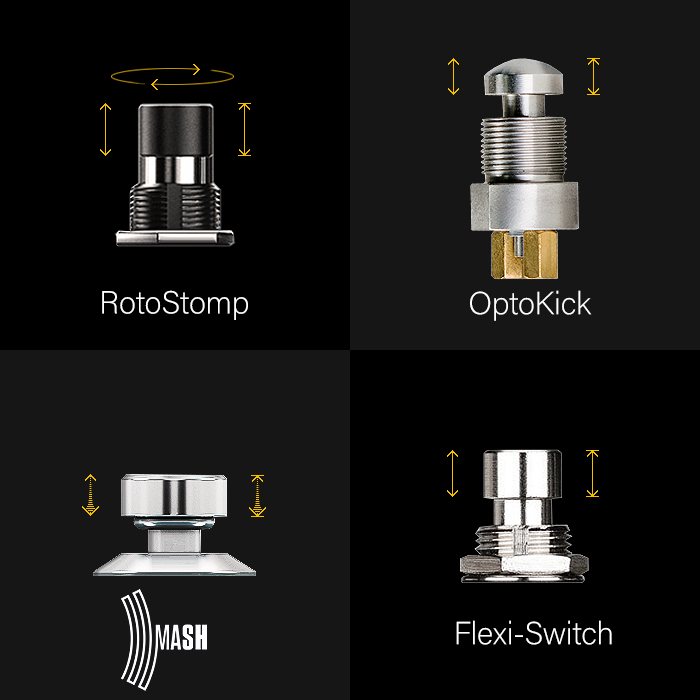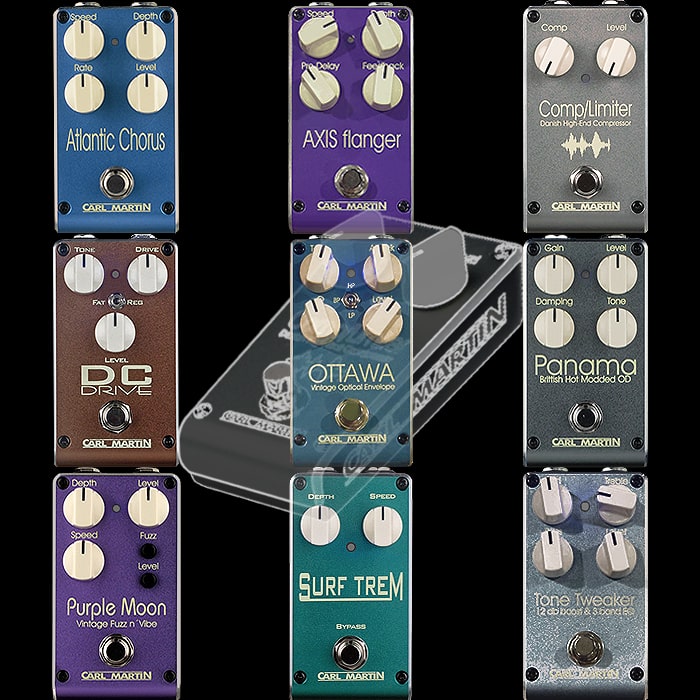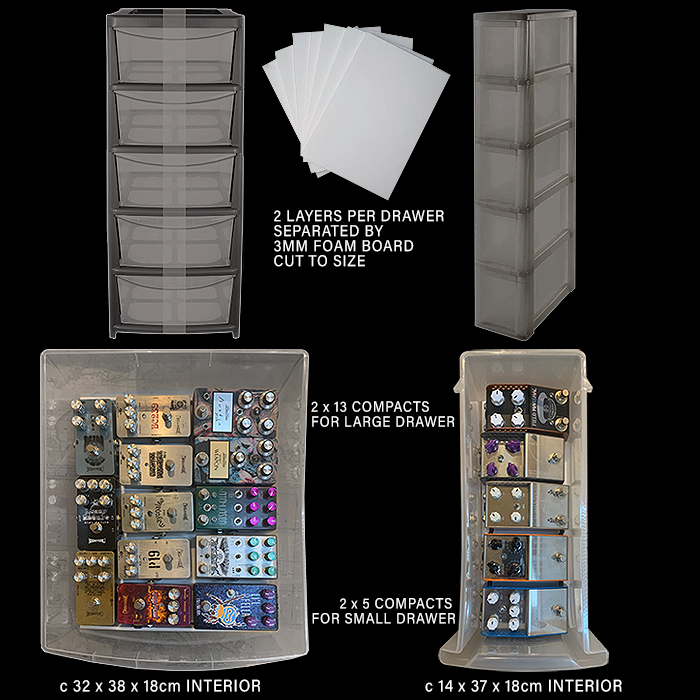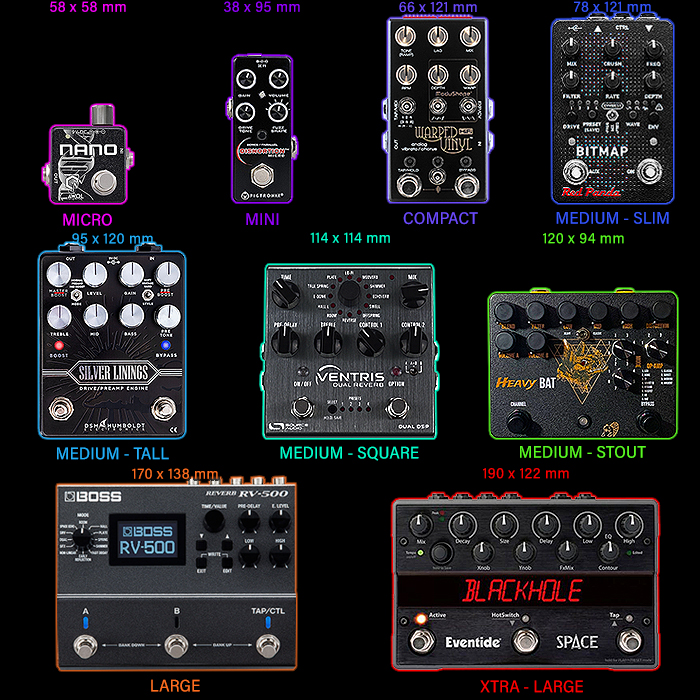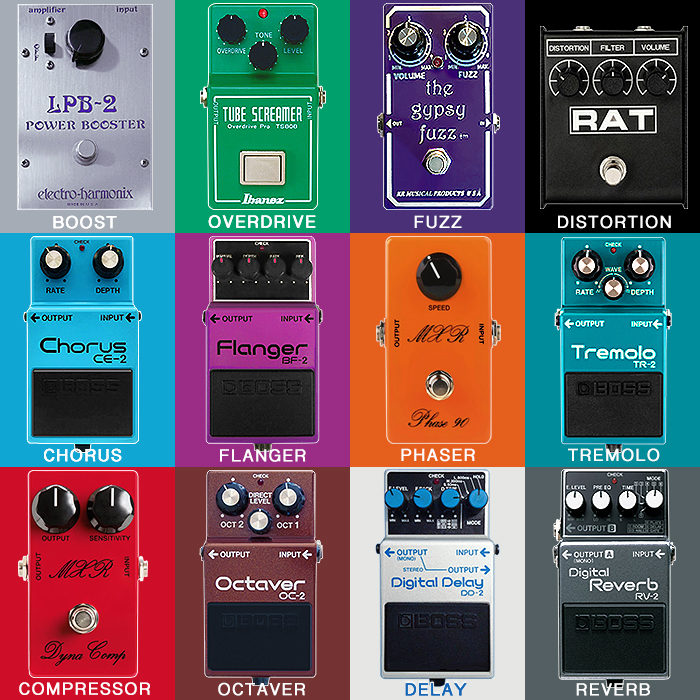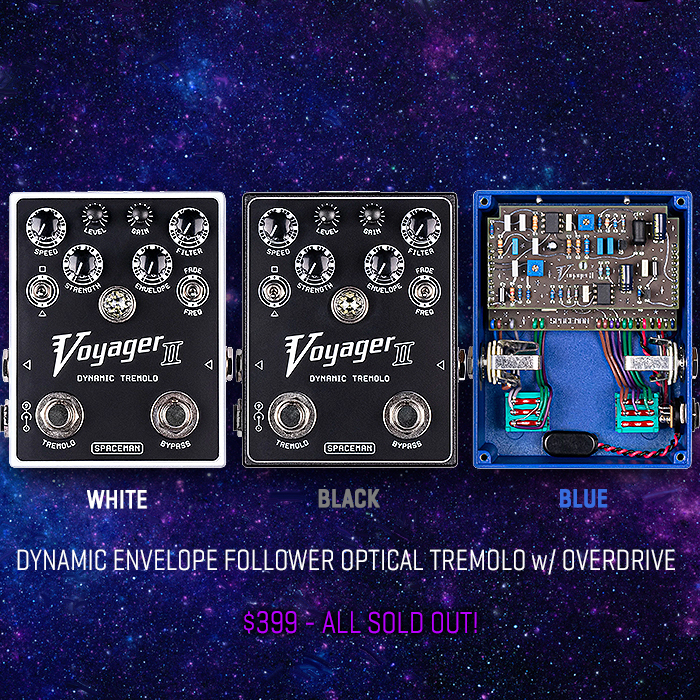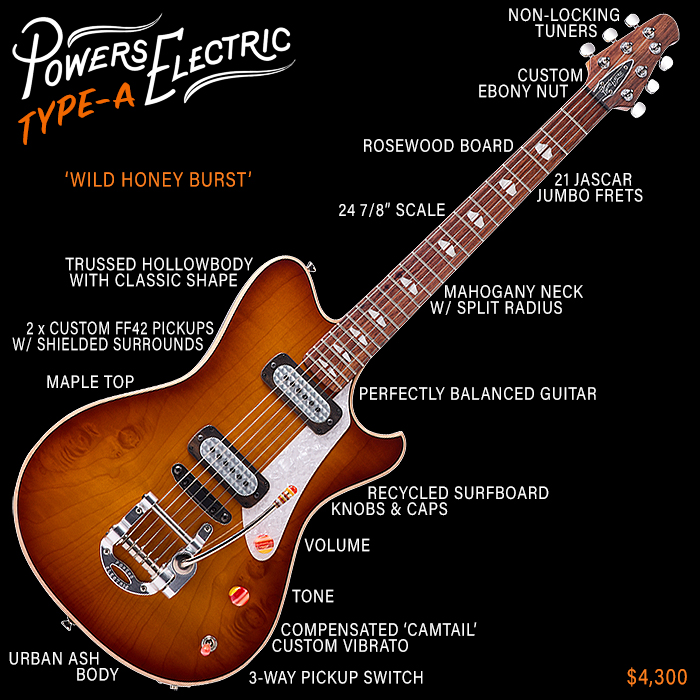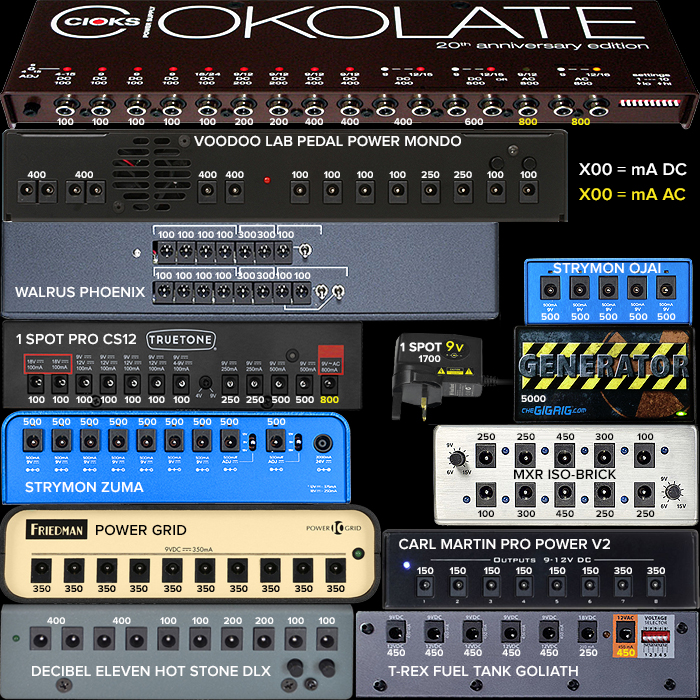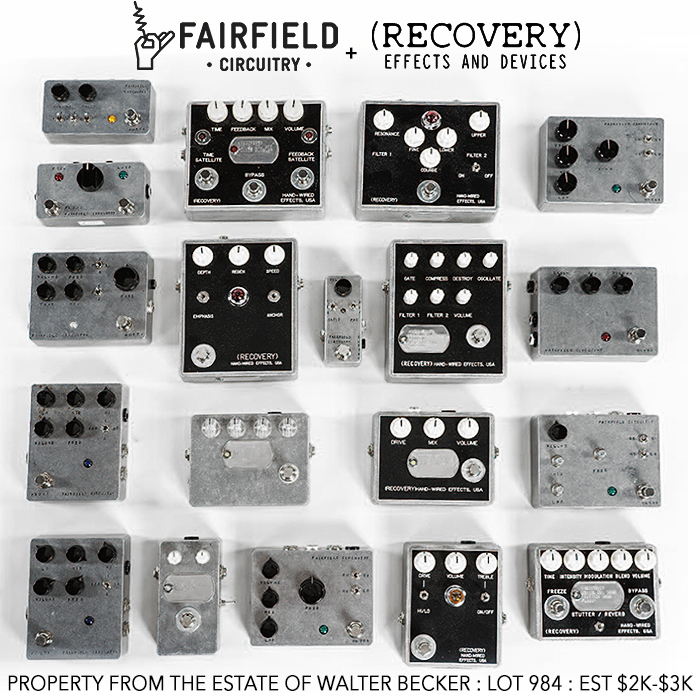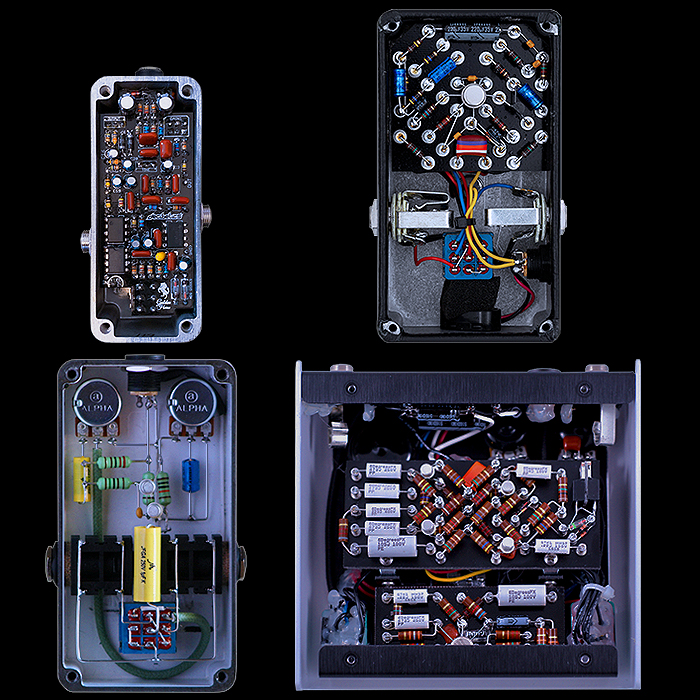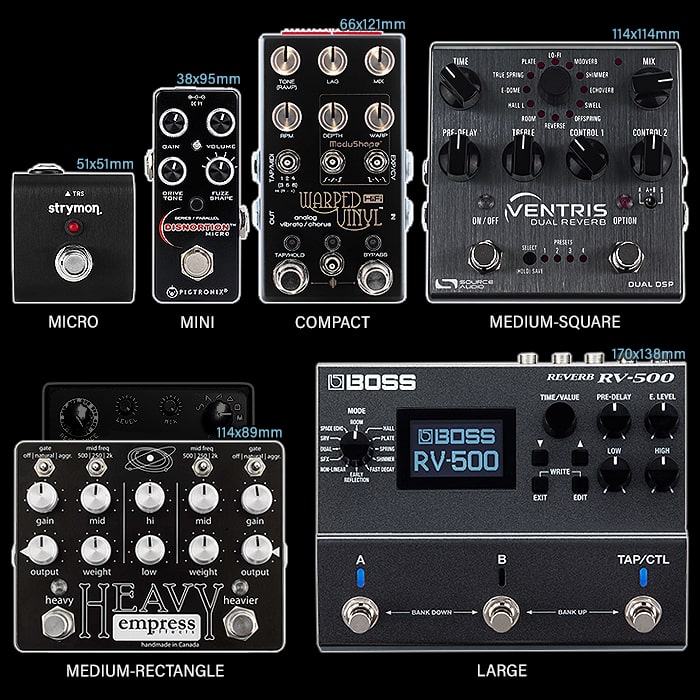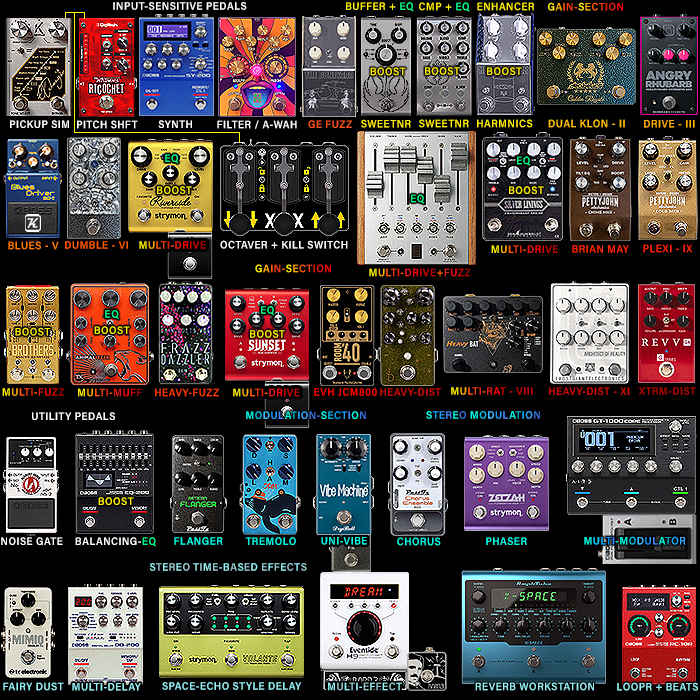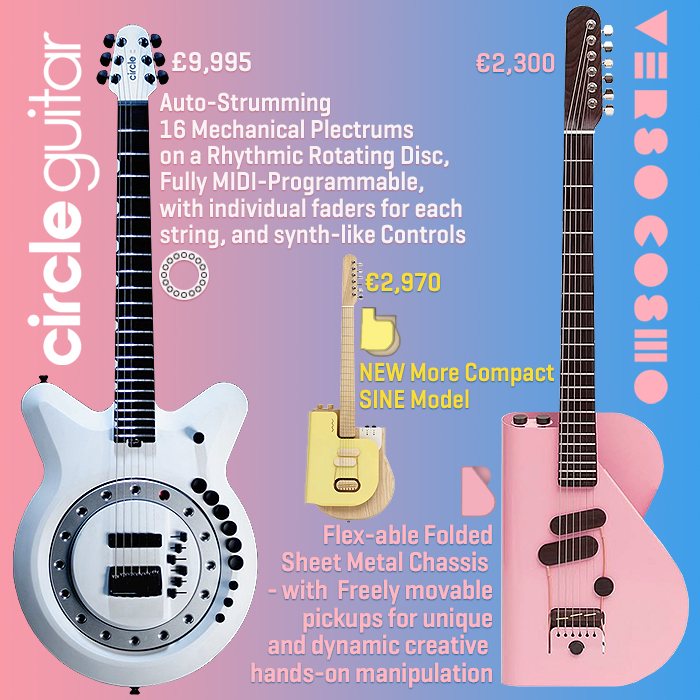9 Cool Modern Tremolo / Vibrato Non-Locking Guitar Bridges
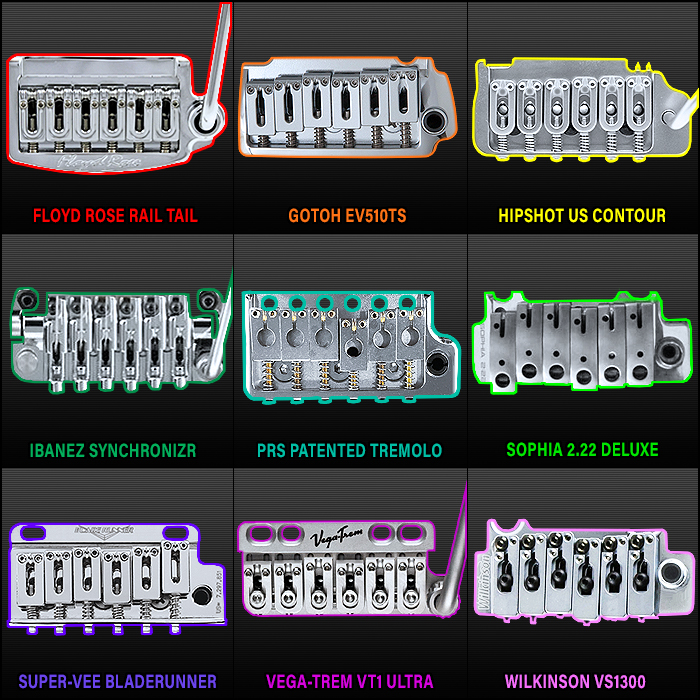
So this is a follow up to my recent Guitar Headstock and Guitar Body Shape posts. You have no idea how long these kinds of articles take to compile. And even though there are just 9 Guitar Bridges featured here it took an age to do the due diligence and find appropriate imagery and pertinent details - as these tend to be fairly poorly documented in the public domain.
I thought I might put in a date marker as to when those bridges first materialised - but had to throw in the towel on that in the end as there was no way to find that information - company’s seem particularly poor in recording their product history! I checked Google, and several socials - including YouTube - and that data is just not generally out there! I was able to find dates for only 3 or 4 of those!
So essentially this was an exercise in picking out my favourite sorts of modern Tremolo / Vibrato Bridges - which I would have a preference for having installed on my guitars. Each of the following has their own advantages - while I’m probably the most impressed with the Vega-Trem VT1 Ultra overall as it’s so slim and generally so easy to live with - and has about the widest range of motion also.
By contrast the Sophia has the most features - with all manner of counter weights on the main block - and various ways to fine-tune your setup - so that takes the longest to set up. Priciest among these is the PRS - where their gold version is an eye-watering $550! Generally you can get a really decent quality Vibrato / Tremolo Bridge for around the $200 mark.
Interesting note is that even since Leo Fender first construed these kinds of Bridges - he mislabelled them as Tremolo Bridges (Amplitude Variation) when they are really Vibrato Bridges (Pitch Variation) - while ever since most have referred to them as Tremolo Bridges / Tremolos / Trems!
Generally there are 10 criteria that you should consider.
Possibly overall this is more of an exercise for the likes of Philip McKnight or Darrell Braun - so you can challenge them to do the technical overview - in fact 5 of these are covered by the following Darrell Braun YouTube video from 2019.
Here are typically my own 10 Key Criteria :
- Size / Slimness
- Range of Movement (Floating / Dive Only)
- Tuning Fidelity / Rate of Return to '0'
- Degree of Sustain / Tone (Bright / Warm)
- Overall Quality of Materials & Build
- Looks
- Price
- Ease of Use
- Ease of Setup
- Availability
And these following 9 are my current favourites, note that the Ibanez SynchroniZR seems to have been discontinued in 2018 - while there are still a few of those available in certain channels - I've always liked the design of that.
Here are my 9 :
- Floyd Rose Rail Tail - from $277
- Gotoh EV510TS - from $145
- Hipshot US Contour - from $198
- Ibanez SynchroniZR - from $199
- PRS Patented Tremolo - from $330
- Sophia 2:22 Deluxe Tremolo - from $300
- Super-Vee BladeRunner - from $235
- Vega-Trem VT1 Ultra - from $240
- Wilkinson VS1300 - from $201
There are elements that I like about each of these - and if you consult The Gear Pages - you will read that each of these bridges as their own legions of fans.
Note that these are Non-Locking types versus the more traditional Floyd Rose and Kahler types - which tend to have high maintenance overheads - and can be particularly tiresome for string changes. My first ever guitar - the Ibanez Roadster RG440 had a Floyd Rose - and that system is too much of a pain for me to want to have it on my guitars - those kinds do of course have their own advantages - but overall are a little cumbersome to what is on offer here.
I don't go into any technical details here - as this is really just and overview - and I feel that you would match the bridge to the design and purpose of your own particular guitar.
Would of course be interested to hear your opinions as usual!
Floyd Rose Rail Tail - from $277
This one overall seems to take up the most space. Its build quality is superb though and it has really cool ergonomics. Kudos to Floyd Rose for evolving one of the best non-locking bridges - where their own pedigree is so heavily tied into the Steve Vai and Eddie Van Halen locking bridges.
Gotoh EV510TS - from $145
The highest spec'd of the Gotoh high quality 510 series line - there's lots of fans of this particular trem system - which is incredible value for such good quality. Gotoh seems to be increasingly taking over from Ibanez's signature bridges - where the SyncroniZR has seemingly been discontinued - and models which used to have that bridge have seemingly switched over to Gotoh. Gotoh is also one of the most celebrated Guitar Tuning Peg manufacturers - possibly alongside Schaller.
Hipshot US Contour - from $198
Another firm fan favourite - lots of DIY builders swear by the Hipshot Contour Bridges - good quality and well priced - it's up to you if you prefer the look of their rounded saddles - while most here are rather more rectangular - has a nice simplicity about it!
Ibanez SynchroniZR - 2008 > 2018 - from $199
This has always been one of my favourite looking Trems - and featured most recently on a Signature Marco Sfogli Ibanez Guitar which I did consider getting for a time - while that cat has since shockingly switched over to Charvel. Shame to see this one go - it's really a quite stunning bridge - and has some really cool features on how you can adjust and control the block. Ibanez need to bring back the SynchroniZR!
PRS Patented Tremolo - from $330
Note that the PRS Bridges were supposedly originally developed in cooperation with MannMade - who still produce their own version of that bridge today. While this is really about the core PRS USA Version - with milled brass block vs the moulded one of the S2 and SE lines. Philip McKnight feels there's very little between the USA and Import PRS Bridge Types - while I was personally encouraged to swap out my CE Import Bridge for a core USA one - even if just for the placebo effect!. Very practical and reliable bridges - but somewhat pricey!
Sophia 2:22 Deluxe Tremolo - from $300
The Sophia 2:22 comes in 3 varieties - 2 intended for regular guitar bodies, and one presumably for headless guitars. My favourite version is the Deluxe variety pictured and featured here. Sophia Trems have a distinct look, they also allow for the most adjustment via counterweight on the block and various other detail touches. You can set up your Sophie Trem incredibly accurately - and entirely to your preferences - but it may take considerably longer - especially for the first 'tune-in'!
Super-Vee BladeRunner - from $235
Super-Vee surely wins the award for the best named Trem System - in the BladeRunner! It's another favourite with DIY builders - reasonably priced and eminently reliable.
Vega-Trem VT1 Ultra - from €240
And so to possibly my favourite of the lot - it's incredibly slimline - both the upper mechanism and the actual Block. It has an incredible range of movement, and considering how slim its Block is - it actually sustains really well. All of these trem systems are pretty great - while this one seems to have the most going for it - and with a pretty reasonable price tag too!
Wilkinson VS1300 - from $180
And finally - we have the newest kid on the block - the latest evolution of the Wilkinson / Gotoh collaboration - and a significant advance on the VS100 series - with what looks like really cool new saddle types. This one's so fresh off the block that It's being announced / launched at the imminent NAMM Show. There don't seem to be any videos on this one yet - so I use one of its predecessor VS100 type.
Final Thoughts
I have to say that much of what I know about bridges comes from Darrell Braun's You TubeChannel - as per the above featured video. He's been the most consistent and detailed in discussing the relative merits of each - and including both generic and individual flaws.
Of course every Trem System however good - has a certain degree of fallibility - but you need to weigh that against the dynamism and improvisational playing ability that it enables vs ultimate stability and tuning fidelity. I personally would not want to buy any guitar which did not have a trem on it - meaning I would go agains the grain on a Les Paul -too where I guess my favourite candidate in that sort of area is the PRS DGT.
There's a mix of practicality, ergonomics and aesthetics here - and this is a fantastic mechanical science - for which I still feel there is some room from development and evolution. For guitars - the three areas that probably have the most future development potential are Bridges, Pickups and Electronics / Harnesses - everything else has been done really!
I've already stated that I think the Vega-Trem VT1 Ultra is probably my overall favourite here - while there are several others here that are right up there too. If you bought a guitar with any of these I'm not sure you would be in any desperate need or hurry to swap things out.
It's interesting to see how the fulcrum of the Whammy Bar varies from bridge to bridge. Obviously the Saddles and the Block are a key consideration - and people typically choose Brass, Steel or Zink blocks - something with significant density and weight. There's probably a whole other science on Block material choice and ideal heft!
For me - practical considerations like ease of maintenance and ease of string change are important here too.
In any case - I'm just scratching the surface really with this article. I feel I've covered most of the key candidates - and as always I will rely on you to keep me in line and tell me what I overlooked or got wrong!

